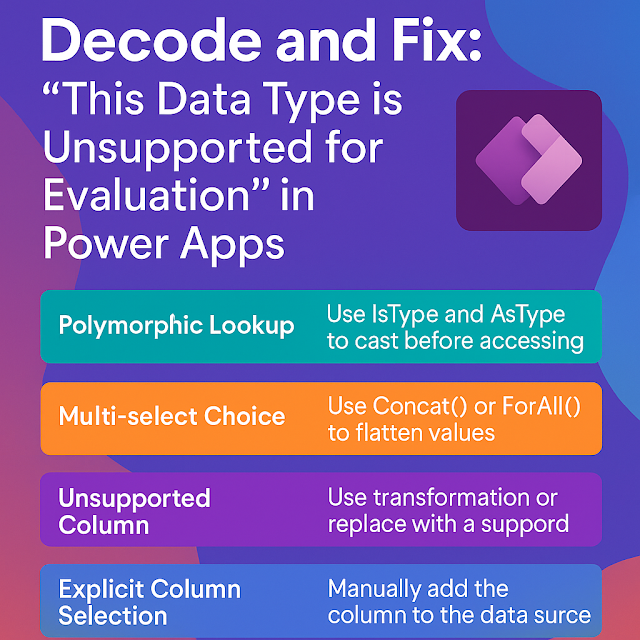Dynamics 365 Field Service : Configure key required security roles
What is a Security Role?
A security role is a collection of permissions (also called privileges) assigned to a user or team to control:
- What entities (tables) they can access (e.g., Accounts, Contacts, Opportunities)
- What actions they can perform (e.g., Read, Write, Create, Delete)
- At what level they can do it (e.g., User, Business Unit, Parent: Child BU, Organization)
Here's a detailed explanation of each security role in Dynamics 365 Field Service, focusing on who uses it, what permissions it provides, and why it’s important:
1. Field Service – Resource
-
Who it's for: Frontline workers or field technicians.
-
Purpose: Enables technicians to view and update their assigned work orders using the Field Service mobile app.
-
Why it’s limited: Technicians only need access to jobs assigned to them, not to the entire system—this ensures data security and avoids complexity.
-
Key Permissions:
-
Read & update work orders.
-
Cannot create or delete.
-
2. Field Service – Administrator
-
Who it's for: IT admins or service managers.
-
Purpose: Grants full control over all Field Service operations.
-
Why it's important: They need to set up, manage, and configure work order types, scheduling, inventory, and all Field Service data.
-
Key Permissions:
-
Full Create, Read, Update, Delete (CRUD) access across the entire module.
-
3. Field Service – Dispatcher
-
Who it's for: Schedulers who assign jobs to technicians.
-
Purpose: Allows scheduling of jobs and management of technician calendars and availability.
-
Why it’s limited: Dispatchers only manage jobs within their business unit.
-
Key Permissions:
-
Can edit and schedule jobs.
-
Limited delete access for scheduling records.
-
4. Field Service – Inventory Purchase
-
Who it's for: Inventory or warehouse managers.
-
Purpose: To manage truck stock, purchase orders, inventory returns, and restocking.
-
Why it's special: Inventory managers often need this in addition to a resource or dispatcher role, to ensure they can manage both stock and jobs.
-
Key Permissions:
-
Limited CRUD access for inventory-specific data.
-
5. IoT – Administrator
-
Who it's for: IT admins or technical service managers.
-
Purpose: Used in Connected Field Service to manage IoT device registrations and alerts.
-
Why it’s needed: IoT devices help in predictive maintenance; admins must manage device data, alerts, and workflows.
-
Key Permissions:
-
Full CRUD access on IoT-related entities.
-
6. IoT – Endpoint User
-
Who it's for: Microsoft only.
-
Purpose: Used internally to establish communication between IoT systems and Dynamics 365.
-
Why it exists: This is a technical background role for platform integration—not meant for real users.
Summary:
Security roles in Dynamics 365 Field Service are finely scoped to match real-world responsibilities. This helps ensure:
-
Data is only accessed by the right people.
-
Each user can perform their tasks efficiently.
-
The system stays secure and compliant.












Comments
Post a Comment